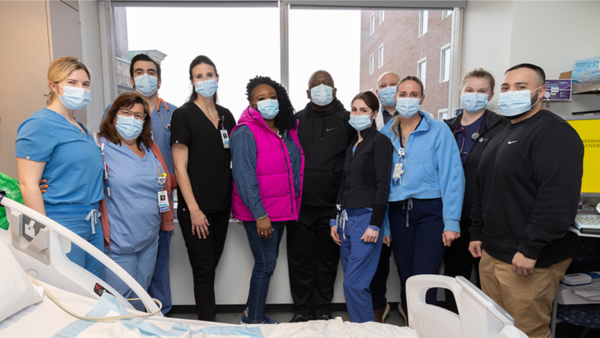He was discharged from the hospital on Wednesday. Two weeks after the surgery he is no longer on dialysis, the hospital has said.
“This moment – leaving the hospital today with one of the cleanest bills of health I’ve had in a long time – is one I wished would come for many years. Now, it’s a reality and one of the happiest moments of my life. I want to thank everyone at Massachusetts General Hospital who cared for me before and after my historic transplant, especially Dr. Williams, Dr. Riella, Dr. Kawai, and the countless nurses who looked after me every day of my stay. The care I received was exceptional and I trust physicians of the Mass General Brigham health system with my life. I’m excited to resume spending time with my family, friends, and loved ones free from the burden of dialysis that has affected my quality of life for many years. Lastly, I want to thank anyone who has seen my story and sent well-wishes, especially patients waiting for a kidney transplant. Today marks a new beginning not just for me, but for them, as well. My recovery is progressing smoothly and I ask for privacy at this time,” Slayman has thanked the hospital for the surgery.

Slayman has been living with Type 2 diabetes and hypertension for many years. He had received a kidney transplant from a human deceased donor in December 2018, which showed signs of failure five years later.
All about endometriosis every woman must know
“This successful procedure in a living recipient is a historic milestone in the emerging field of xenotransplantation – the transplantation of organs or tissues from one species to another – as a potential solution to the worldwide organ shortage,” MGH had said during the surgery.
Organ transplantation involves surgically removing an organ or tissue from one person (the donor) and placing it into another person (the recipient) whose organ has failed or been damaged. This life-saving procedure is commonly used to treat end-stage organ failure, such as kidney, liver, heart, lung, or pancreas failure. Organ donors can be deceased or living, with deceased donors typically providing organs posthumously, while living donors can donate a kidney, part of their liver, or lung. Organ transplantation has revolutionized medicine, significantly improving survival rates and quality of life for recipients, although challenges such as organ shortages and rejection remain.
(Images from Massachusetts General Hospital (MGH))

